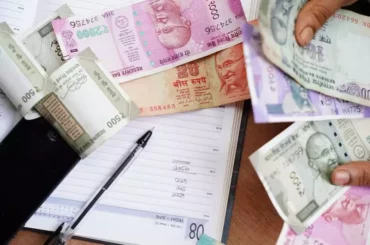Information presented on this web page is intended for informational and educational purposes only and is not meant to be taken as legal, financial, investment or tax advice. We do not accept any responsibility for any trading or investment related losses. Please review our disclaimer on before taking action based upon anything you read or see.
Many of us might have gambled or entered a lottery. Research says that 85% of American adults report gambling at least once. But when does occasionally buying a scratch-off or rolling the dice turn into this big a monster – gambling? Anyone can adopt this addiction from any background. It is a weird transition from a safe and risk-free transaction to an obsession and a necessary fix. Let’s learn how to stop gambling and save money.
It not only causes financial damage but also ruins your relationships and your job, as well as changes your personality into an ugly, greedy one. There is an increased risk of you piling up massive debts or stealing to compensate for the need to quench your addiction.
Gambling addiction is medically pathological, which is abnormal for the human psyche. It is also known as compulsive gambling or gambling disorder, basically a game of impulse control.
Compulsive gamblers are lured repeatedly into betting despite knowing the gravity of their situation, where it could lead them, and what consequences await them. They will still gamble even if all odds are against them. Nothing but a never-ending abyss is created for them due to their actions.
Although gambling may be seen as an addiction, unlike with narcotics and alcohol, your body won’t necessarily suffer or experience withdrawal symptoms, but your wallet certainly will.
Has gambling become a problem for you or a loved one? While it may be difficult to admit that you have a gambling problem, it could be the first step to your recovery and resuming a healthy lifestyle. You should examine the warning symptoms and take the initiative to end them.
Eliminating the factors that make gambling possible in your life and substituting them with better options is one strategy to stop gambling. Dealing with most issues requires taking things one step at a time. This article will use different strategies to help you rebuild and reestablish your life.
How to Stop Gambling and Save Money

- Decide to stop gambling
- Commit yourself to a treatment program
- Attend self-help group meetings
- Avoid places where you gamble
- Get a job – it’ll help you rebuild your life and recover from your gambling addiction.
- Take care of your health by eating right and exercising regularly
- Find ways to deal with stress and depression that don’t involve gambling
- Don`t be afraid, be proud of yourself
- Find alternative activities to replace gambling
- Set a firm date to quit and stick to it
- Stick to your decision and don’t relapse
- Evaluate the reasons for relapsing and decide on your next step
- Consider going for professional help
- Learn from your mistakes and move forward
Let’s discuss the steps in detail;
Decide to stop gambling
First things first. You need to be honest and acknowledge that you have been struggling with this issue. It would help if you made a decision. Upon this realization, instantly stop, consider the consequences of your action, ask for help and accept it.
Commit yourself to a treatment program
It is difficult to overcome such addictions alone, and it may be stressful to do it alone. You can enroll yourself in certain treatment programs. Various programs, such as gambler’s help services, are available in your area, which can provide you with professional and confidential counseling.
Attend self-help group meetings
You can sign up for specific peer support groups. Finding a sponsor, a former gambler with experience overcoming an addiction like this, is the most important aspect of this program, which is often a rehabilitation program.
Given that they have been in your shoes before, they may provide you with significant advice and support. Talking about your issues with someone you don’t think would judge you is vital.
Avoid places where you gamble.
There is no chance to gamble if there is no game or activity to consider partaking in. Don’t put yourself in difficult situations. Avoid all technology that lures you into this trap. There is a program known as “voluntary self-exclusion” to prevent yourself from investing in gambling at a particular place.
This program allows you to prevent entering certain locations or utilizing the gaming places there. In case of contract violation, the agreement provides your chosen venues the right to ask you to leave.
Get a job – it’ll help you rebuild your life and recover from your gambling addiction.
Excessive gambling can leave you in shackles. While it may not harm your physical health, it drains your bank account and leaves you in debt. You experience such a financial crisis that it negatively impacts your mental health. In such circumstances, you should find employment, start making money, and settle your debts.
Get in charge of your life and rebuild it block by block.
Take care of your health by eating right and exercising regularly
You may stay committed to minimizing or quitting gambling by learning to relax, get lots of rest, and eat healthily. Your strategies, which include the following, may be assisted by a counselor.
- Muscular relaxation training
- Meditation
- Yoga
- Exercise
- Sport
Find ways to deal with stress and depression that don’t involve gambling
The triggers for gambling issues include:
- Depression,
- Stress,
- Substance abuse,
- Anxiety.
These issues remain even after the victim gets rid of this vicious habit. That is why it’s critical to address them and fight them by finding alternative solutions that don’t involve gambling, such as sports, making new acquaintances who support your growth, or engaging in interesting, healthy activities.
Don`t be afraid, be proud of yourself.
The day you decide to eliminate your addiction should make you proud. To get all the way here requires immense bravery, mental fortitude, and physical stamina. You shouldn’t feel bad about your former behavior; instead, embrace yourself and start anew.
Find alternative activities to replace gambling.
You will need to find healthy alternatives. Replace your gambling behaviors with positive activities. Here are a few gambling alternatives:
- Going for a walk.
- Working out, etc.
- Spending more time with people who radiate positive vibes.
- Engaging in volunteer work.
- Exploring new hobbies.
Set a firm date to quit and stick to it
Setting a specific deadline and sticking to it can keep you motivated and prevent you from slacking off and reverting to your old habits. More than deciding to quit is required.
Stick to your decision and don’t relapse
When this addiction resurfaces, it’s mostly predictable. You may feel restless, moody, tired, or irritated; at times like these, you’ll become vulnerable to losing control and sanity. You can feel the need to ask for a loan or gamble and relapse into your old pattern. At times like these, you must stick to your decision and remember that you came all the way here.
Evaluate the reasons for relapsing and decide on your next step
Recovering from addictions might feel like a rollercoaster ride with lots of bumps, and sometimes your inner demons get the best of you, and you can’t help but fall back into the same old patterns.
You need to continue reminding yourself of your journey, your accomplishments, and how far you’ve come. Being somewhat ashamed and guilty can also help you stay on track.
Consider going for professional help.
Seeking Professional treatment can help you stay away from gambling for good and also help in polishing the skills you have already acquired. The only thing stopping you from asking for help in the form of counseling or therapy could be your hesitation.
You can even attend a support group to learn from people like you. One phone call has the power to improve your life significantly. Call immediately to schedule a private, confidential assessment to get you out of this mess.
Learn from your mistakes and move forward
Avoid dwelling on past actions and only use them as inspiration to avoid back gambling in the future. Too much guilt or shame can be detrimental. Learn from your mistakes and move forward; helping others could give you a sense of accomplishment and atonement.
It develops a sense of responsibility that you have to do better for yourself and others who may feel better talking to you.
Last Words
To sum it up, Policymakers’ attention has recently been drawn to the socioeconomic costs of gambling, which is now seen as a serious public health issue. Losses from gambling frequently result in the depletion of financial and social resources.
Victims of such losses are more prone to financial instability and find it challenging to raise emergency funds to support consumption during times of need. Excessive gambling can lead to significant losses and falling into more and more debt, frequently landing people in uncomfortable situations that could have been avoided if they had given up playing.
Realizing you have a problem and making the required efforts to address it and ultimately get a grip on it is the biggest step in overcoming a gambling addiction. It takes great effort and strength to own up to your addiction, especially if you have suffered significant financial loss and strained or broken relationships.
It would help if you strived not to give up, not think you’re the only one in this situation, and not be too hard on yourself. You, too, might be able to overcome your addiction to gambling, rebuild your life, and start over if you take an oath to yourself and shift your focus to your recovery and healing.
References






